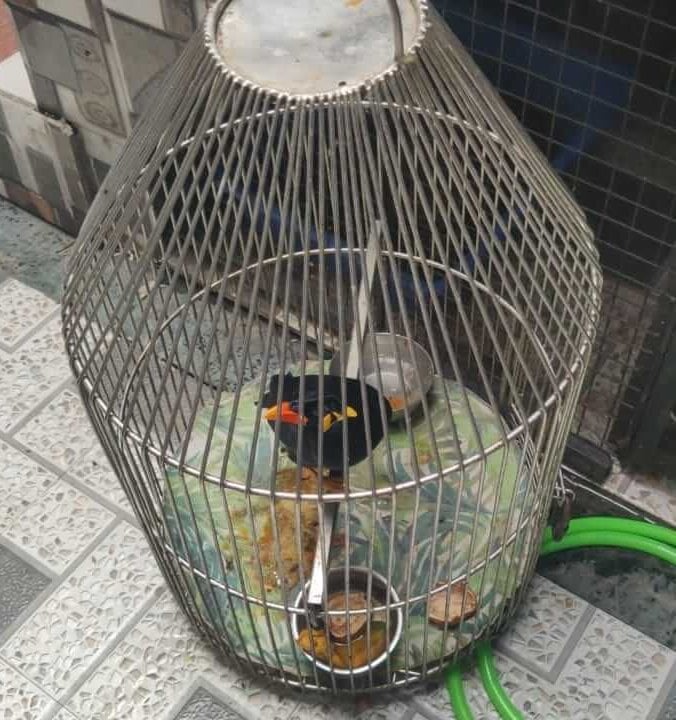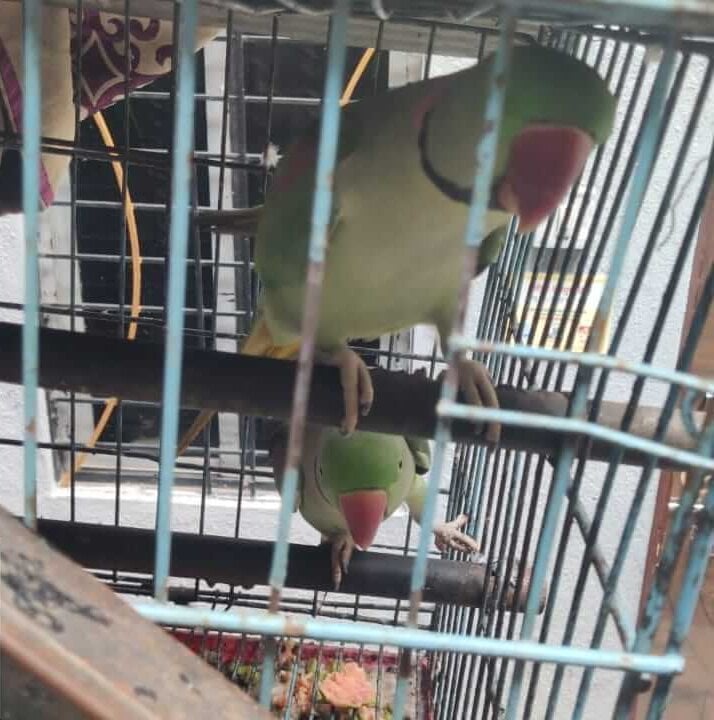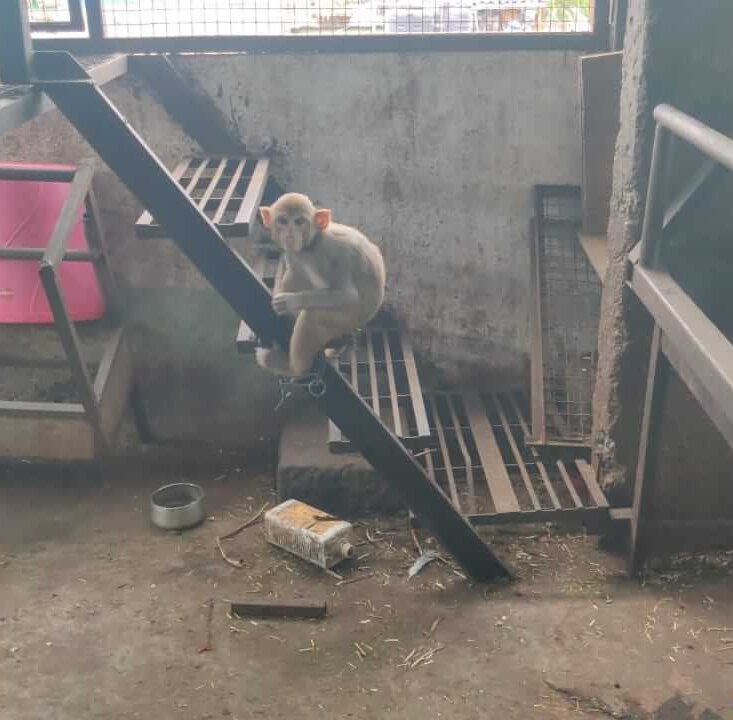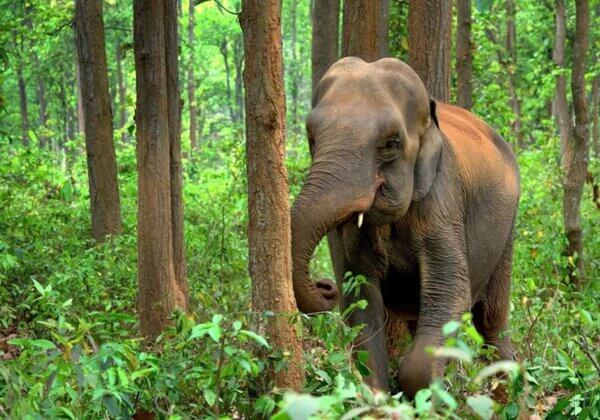Two Parakeets, a Common Hill Myna, and a Rhesus Macaque Rescued Following PETA India Intervention
After a concerned citizen reported that a rhesus macaque monkey was being kept chained in a slum in Yerawada, PETA India worked with RESQ Charitable Trust and Pune forest department to rescue the monkey. Upon reaching the location, officials also found two Alexandrine parakeets and a common hill myna – animals protected under the Wild Life (Protection) Act, 1972 (WPA). The birds were confined to small cages close to where the monkey was chained. All four animals were immediately seized by the forest department.
Following their rescue, the animals were sent to RESQ Charitable Trust for a health check, treatment, and temporary rehabilitation. They will be released in nature after complete recovery. Common hill mynas and Alexandrine parakeets are protected under Schedule I and II of the WPA, respectively. Buying, selling, or possessing a Schedule I species is an offence under sections 9, 39, and 51 of the WPA and is punishable by a jail term of between three and seven years and a fine of at least Rs 25,000. PETA India has written to the Maharashtra Forest Department calling for the perpetrators to be booked under the relevant sections of the WPA.
In the illegal bird trade, countless victims are taken from their families and denied everything that’s natural and important to them so that they can be sold as pets or used as bogus fortune-tellers. Fledglings are often snatched from their nests, and others panic as they’re caught in traps or nets that can seriously injure or kill them as they struggle to break free. Captured birds are packed into small boxes, and an estimated 60% of them die in transit from broken wings or legs, thirst, or sheer panic. Those who survive face a bleak life in captivity, suffering from malnutrition, loneliness, depression, and stress.
Monkeys kept in people’s homes as pets or to be forced to dance are often chained or confined to cramped cages. When used for entertainment, they are typically trained through beating and food deprivation, and their teeth are commonly pulled out to prevent them from defending themselves. In 1998, the central government issued a notification under The Prevention of Cruelty to Animals Act, 1960, stating that monkeys and several other species of wild animals are not to be exhibited or trained as performing animals.
Things to Do if You Witness Cruelty to Animals







